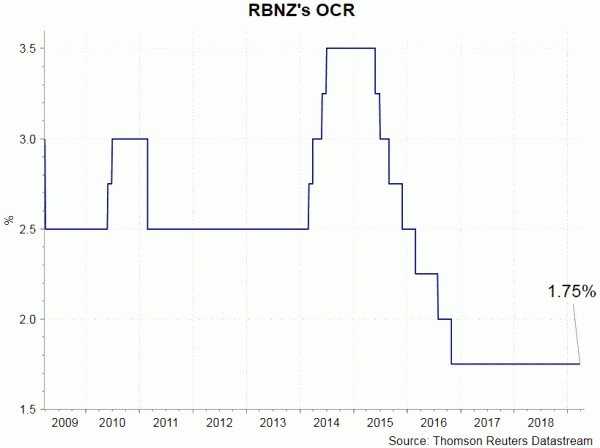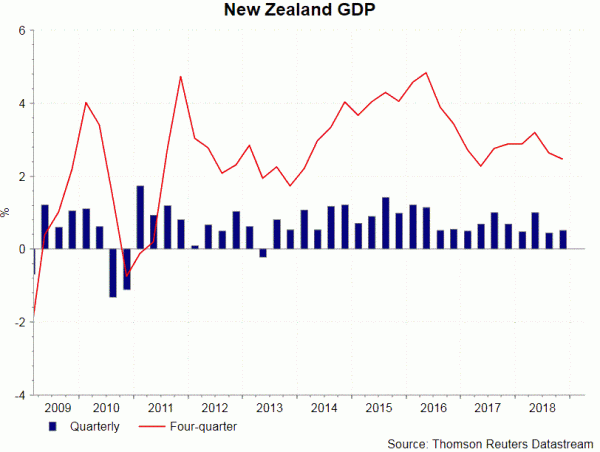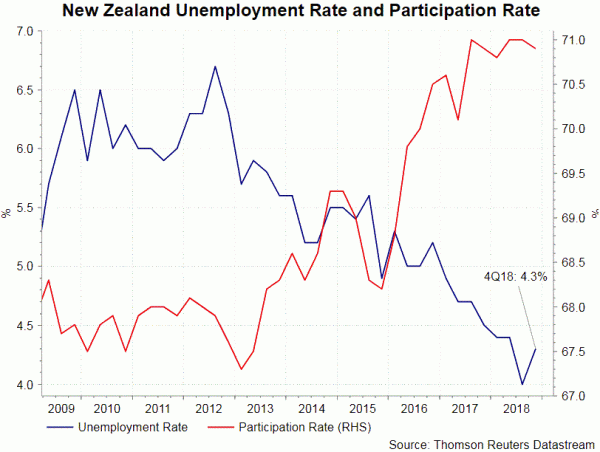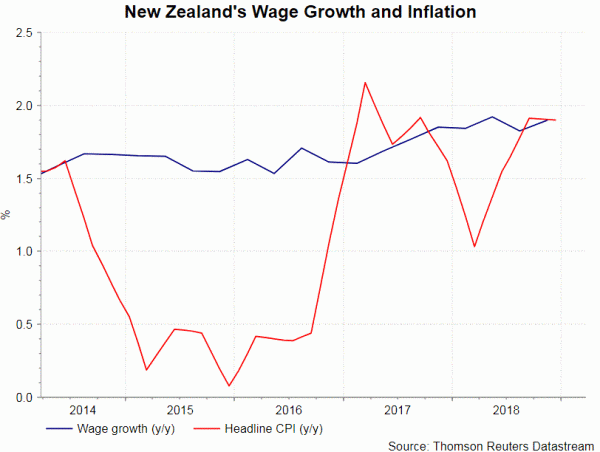RBNZ is expected to leave the cash rate at 1.75% in March. However, as both domestic and global economic slowdown has intensified since the February meeting, we doubt if the central bank could maintain the guidance that next rate change could be “up or down”. Indeed, we expect the chance of a rate cut this year has increased.
Domestically, GDP expanded by +0.6% q/q in 4Q18, up from +0.3% a quarter ago. This came in consistent with consensus but below RBNZ’ forecast of +0.8%. From a year ago, the economy grew +2.3%, compared with +2.6% in the third quarter. Not only is it weaker than consensus of +2.5% and RBNZ’s +2.7%, the growth is also the lowest since 4Q13. For the year of 2018, GDP growth reached 2.8%, with stronger growth in the first half of the year partly offset by slowdown in the second half. The job market had been resilient with the unemployment rate in downtrend and staying at post-crisis low.


Consumer and business confidence remains fragile. Last week, Westpac’s release of consumer survey showed that the confidence index fell to 103.8 in 1Q18 from 109.1 a quarter ago. Meanwhile, NBNZ’s business outlook index worsened to -30.9% in February from -24.1 in the prior month. subdued wage growth and lack of uncertainty about the economic outlook might hamper household spending and business investment for the rest of the year.
The country recorded trade surplus of NZD 12M in February, compared with consensus of deficit of NZD 200M. However, the January deficit was revised higher to NZD 948M. Weakness in trading partners (in particular Australia, China and Eurozone) is expected deteriorate New Zealand’s developments.
In February, RBNZ turned more dovish, noting that “the tailwinds to growth have eased” while “trading-partner growth is starting to slow”. The central bank revised lower GDP growth and inflation forecasts for this year through 2020. It also pushed the timing of the first rate hike. However, it retained the stance that the next move could be “up or down”. We expect the central bank to turn even more pessimistic about the economic outlook in March. On the monetary policy stance, the deteriorating economic backdrop suggests that RBNZ is struggling to maintain the neutral stance. It could soon remove the guidance that next move could be “up or down” soon.
